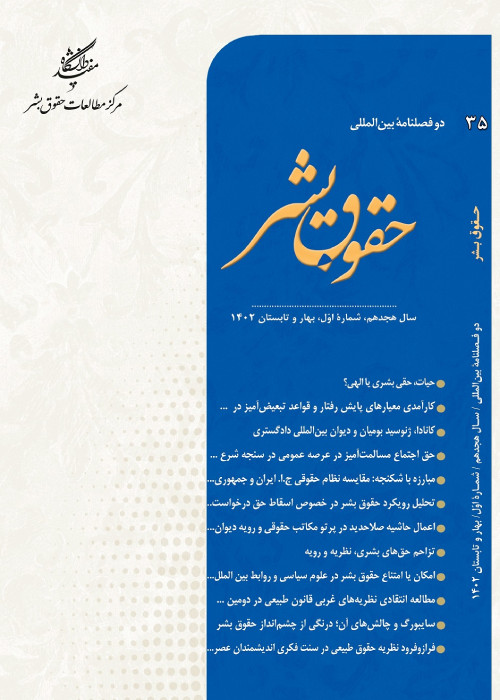Identity and the Hegemony of Universal Human Rights
Human rights are commonly portrayed as a narrative that passes through several chapters before reaching its inevitable conclusion. This narrative begins with the horror of Nazism, moves to the centrality of human rights in the UN Charter, eulogizes the Universal Declaration, celebrates the achievements of standard setting as set out in the major covenants, offers detailed analysis of methods of monitoring and, finally, speculates on the future of compliance. This narrative is sustained, firstly, by naturalist foundationalism and, secondly, by a widely held assumptions about the move towards settled norms in the contemporary world order. Although some pessimism is voiced over continued reports of torture, genocide, structural economic deprivation, disappearances, ethnic cleansing, political prisoners, the suppression of trade union rights, gender inequality, religious persecution, and many other violations of internationally agreed human rights, most commentators and activists tacitly adopt an optimistic stance that envisages a future rights based international order. The still prevalent naturalist account of human rights, together with a narrative that boasts settled norms, suggests that the human rights regime represents a final truth about the essential nature of all humankind; a common identity that describes the individual in an increasingly globalized world.
This paper interrogates the naturalist-settled norm account of human rights from the perspective of power and knowledge. It begins by distinguishing between the international human rights regime and the global discourse of human rights. The former adopts a legal approach, where the neutral, value-free, unbiased and impartial nature of the law is tacitly accepted. The latter refers to human rights as social, political and economic practice, and must therefore include an account of power. From this perspective, the discourse of human rights might be said to ascribe a particular identity to human beings as agents of a particular type and kind, which serves the interests of some groups over others. While the human rights regime is presented by world leaders, commentators and the majority of academics as the legitimate articulation of norms founded upon timeless truths about human nature, the argument presented in this paper suggests that the norms associated with the discourse of rights offer a more cogent insight into the status of human rights in the current world order. Thus, complex questions arise about power/knowledge, foundationalism, the status of international human rights law, and the politics of rights.
The paper begins with an account of discourse as a meeting place for power and knowledge. A second section discusses discipline as a mode of social organization that imbues the individuals identity with particular ways of thinking, knowing and behaving, thereby instilling a particular social consciousness. A further section looks at the global development of market disciplinary norms (as opposed to legal norms) that act as a guide for action. The paper concludes with a discussion on issues of human rights and identity in the age of globalization.
- حق عضویت دریافتی صرف حمایت از نشریات عضو و نگهداری، تکمیل و توسعه مگیران میشود.
- پرداخت حق اشتراک و دانلود مقالات اجازه بازنشر آن در سایر رسانههای چاپی و دیجیتال را به کاربر نمیدهد.


